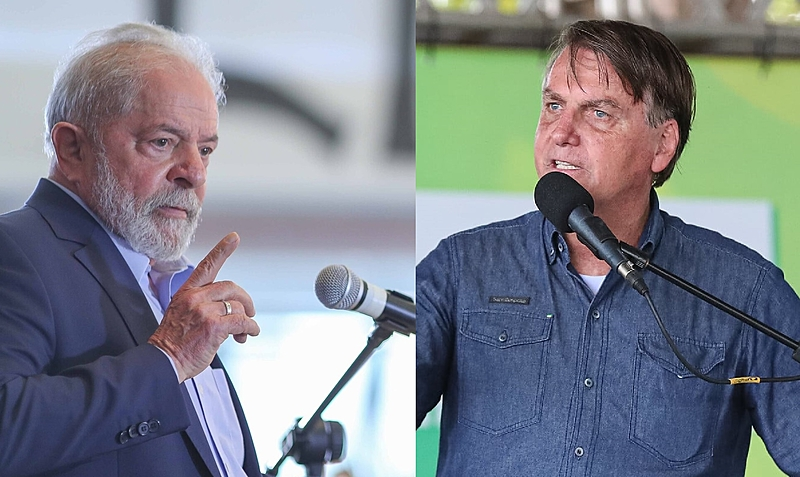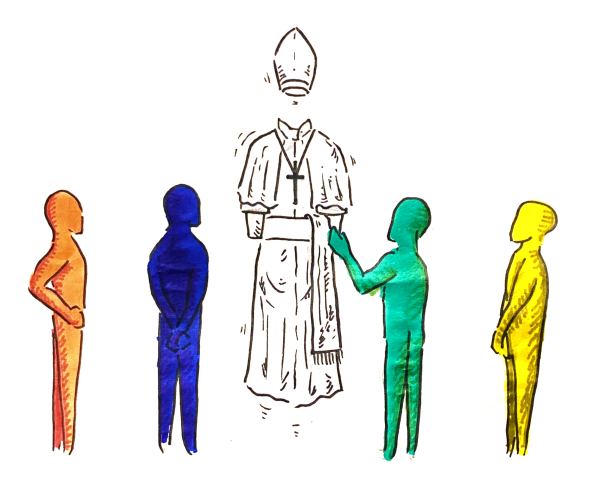In October, Brazil Must Pick Its Poison
Former President Lula and President Bolsonaro
The future of Brazil looks dark. Brazil has gone from being a military dictatorship to a republic, from being one of the most promising countries in the developing world to being tainted with corruption and international embarrassment. And now there is an election that is spearheaded by the current and former presidents. These two characters leave Brazilians to make a tough decision with no upside.
Serving Brazil from 2003 to 2010, President Luis Inácio Lula da Silva, known as Lula, steered Brazil into a future of promise. With the boom of commodities in Brazil and the Brazilian Real trading at an all-time high against the Dollar, President Lula gained enormous support for himself and his party. However, these actions came with drawbacks. Marina Silva, who served as the environment minister for Lula, said, “They didn’t do what was necessary for the country, but what was necessary to remain in power.” For example, Lula used infrastructure funds to reward his voter pool in the northeast region of the country. His goal was to develop a respectable naval industry to become a major exporter of oil. The project failed disastrously, causing permanent environmental problems, damage to local economies, and an embarrassing depiction of Brazil’s supply chains. The president was more concerned with PR and re-election than the benefit for Brazil. Brazilians should reevaluate if Lula really values the entirety of his country or just his supporters. Another facet of Lula’s presidential career was the “Carwash” case allegedly tying President Lula into a bribery scheme involving many leaders including Dilma Rousseff, his successor and member of the same party, and the State-owned oil company Petrobras. President Lula has denied all responsibility or connection to the case, but investigators uncovered a beachside apartment in Guarujá thought to be a bribe. Petrobras was the face of a once emerging economy with the discovery of untapped oil fields off the coast of Rio de Janeiro, now known for its involvement in one of the largest bribes schemes in history. The company bribed lawmakers with houses and other luxury items to allocate government funding to the company, and billions of tax dollars went missing. In 2017 the court overturned Lula’s involvement in the corruption scandal, allowing him to run for president, but it is still uncertain if Brazilians can trust a man who denied responsibility for faults in his own government. Being president of any group requires a person of integrity and the complete trust of his people, however, shields of questions still surround President Lula.
Jair Bolsonaro has been serving as Brazil’s President since 2019. He has been globally criticized, some even going to say he has committed crimes against humanity for his management of the Covid-19 pandemic. His incompetence, though, raises questions as to whether he is fit for the job. When Brazil ran out of oxygen tanks during the height of the pandemic, Bolsonaro sent hospitals unproven drugs that the hospitals did not need. A by-the-book populist, Bolsonaro has prioritized his reelection over protecting Brazil’s National Treasures. Bolsonaro is backed by many farmers who want more cattle grazing land. Under his administration, the Amazon Rainforest hit record high deforestation and wildfire levels due to declining protections. Bolsonaro’s cling to power is causing irreparable damage to the Amazon’s biodiversity, global health, and economy. His failure to protect important resources for Brazil and the world shows his true priorities. Leaked documents show Bolsonaro also has had a role in spreading misinformation surrounding the upcoming election in October. Politicians from 27 different countries warned Brazilians that Bolsonaro has planned a January 6 style insurrection if the election does not go his way. Brazilians should question a potential vote for a person who would risk democracy itself over an election.
This September President Bolsonaro signed a decree which temporarily did not allow social media companies to remove content from their platforms inside Brazil. Many believe this effort was to increase his misinformation campaign and reduce confidence surrounding the election. However one week after Bolsonaro signed this, Brazil’s Senate and the Supreme court overturned the order. This action by Brazil’s politicians supported by the people shows that the citizens of Brazil want a fair and truthful election. It is imperative that Brazilians continue this type of behavior throughout the election period and beyond. They are faced with two untrustworthy candidates, and their future depends on the citizens themselves holding their democracy together regardless of October’s outcome.






